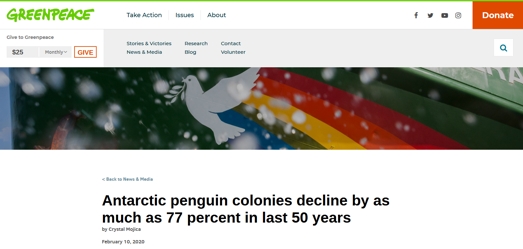
Emperor penguin claims Pekapeka Beach, Kapiti Coast. First such visitor recorded here since 1967.
Oh, it’s cooling all right
It’s got so cold here that penguins are arriving.

One Emperor penguin’s long, lonely journey — 3300 km.
The NZ Herald has some great shots of Mr Emperor on the beach, taking in the sights and getting used to the adulation.
On the Google Earth clip at right you can see the shortest possible track he could have swum in reaching us from the nearest part of the Antarctic coast. It measures a mind-bending 3300 kilometres. Of course, it’s beyond question that he would have travelled far more than that, because of ocean currents.
Nice to see him here, but I hope he goes on his way soon, because there’s not much future for his kind in New Zealand. We’re not cooling that much.
Visits: 67




